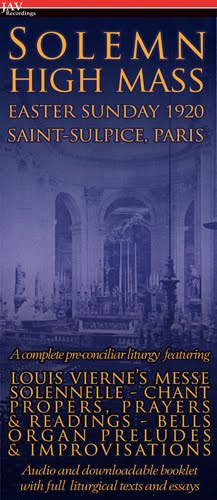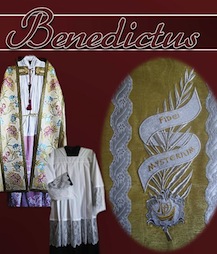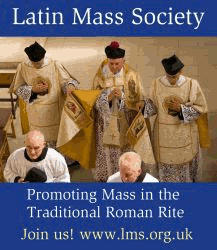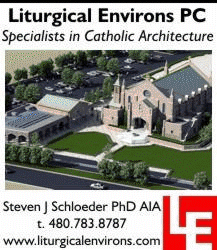Here, now, is the full text of the Pope's letter regarding the lifting of the SSPX excommunications itself, which has already been published in the most prestigious and reliable German newspaper Frankfurter Allgemeine Zeitung, in an NLM translation:
Dear brethren in the Episcopal ministry!
The lifting of the excommunication of the four bishops ordained by Archbishop Lefebvre in 1988 without a mandate of the Holy See has led, both within and outside the Catholic Church, for a variety of reasons, to a discussion of such vehemence as we had not experienced for a long time. Many bishops felt at a loss before an event which came unexpectedly and could barely be integrated positively among the questions and tasks of the Church of today. Although many pastors and faithful were willing in principle to value positively the Pope's desire for reconciliation, against this was the question of the appropriateness of such a gesture, given the real urgency of a believing life in our time. Several groups, however, accused the Pope openly of wanting to return behind the Council. An avalanche of protests was set into motion, the bitterness of which made injuries visible which transcended the moment. Therefore I feel pressed to address to you, dear brethren, a clarifying word, which is meant to help to understand the intentions which have guided me and the competent organs of the Holy See in this step. I hope in this way to contribute to peace in the Church.
One mishap for me unforeseeable, was the fact that the Williamson case has superimposed itself on the remission of the excommunication. The discreet gesture of mercy towards the four bishops ordained validly but not legitimately, suddenly appeared as something entirely different: as a disavowal of the reconciliation between Christians and Jews, and therefore as the revocation of what in this area the Council had clarified for the way for the Church. The invitation to reconciliation with an ecclesial group separating itself had thus become the opposite: an apparent way back behind all the steps of reconciliation between Christians and Jews which had been made since the Council and which to make and further had been from the outset a goal of my theological work. The fact that this superposition of two opposing processes has occurred and has disturbed for a moment the peace between Christians and Jews as well as the peace in the Church I can only deeply regret. I hear that closely following the news available on the internet would have made it possible to obtain knowledge of the problem in time. I learn from this that we at the Holy See have to pay more careful attention to this news source in the future. It has saddened me that even Catholics who could actually have known better have thought it necessary to strike at me with a hostility ready to jump. Even more therefore I thank the Jewish friends who have helped to quickly clear away the misunderstanding and to restore the atmosphere of friendship and trust, which - as in the time of Pope John Paul II - also during the entire time of my pontificate had existed and God be praised continues to exist.
Another mishap which I sincerely regret, is that the scope and limits of the measure of 21 January 2009 have not been set out clearly enough at the time of the publication of the procedure. The excommunication affects persons, not institutions. Episcopal consecration without papal mandate means the danger of a schism, because it calls into question the unity of the Bishops' College with the Pope. The Church must, therefore, react with the harshest punishment, excommunication, and that is to call back the persons thus punished to repentance and into unity. 20 years after the ordinations this goal has unfortunately still not been achieved. The withdrawal of the excommunication serves the same purpose as the punishment itself: once more to invite the four bishops to return. This gesture was possible after the affected had expressed their fundamental recognition of the pope and his pastoral authority, albeit with reservations as far as obedience to his magisterial authority and that of the Council is concerned. This brings me back to the distinction between person and institution. The releasing of the excommunication was a measure in the field of ecclesial discipline: the persons were freed of the burden of conscience of the heaviest ecclesial censure. From this disciplinary level one has to distinguish the doctrinal area. That the Fraternity of Saint Pius X does not possess a canonical position in the Church is not based ultimately on disciplinary grounds but on doctrinal ones. As long as the Fraternity does not possess a canonical position in the Church, its officials do not exercise legitimate offices in the Church. One has therefore to distinguish between disciplinary level affecting the persons as persons, and the level of doctrine, at which office and institution are concerned. To say it once again: As long as the doctrinal issues are not resolved, the Fraternity has no canonical status in the Church and its ministers, even if they are free from ecclesiastical censure, do not exercise in a legitimate way any ministry in the Church.
Given this situation, I intend to connect the Pontifical Commission "Ecclesia Dei", which since 1988 is responsible for those communities and individuals who, coming from the Fraternity of Pius X or similar groups, want to return into full communion with the Pope, in the future with the Congregation for the Doctrine of the Faith. This shall make it clear that the problems now being treated are essentially doctrinal in nature, especially those concerning the acceptance of the Second Vatican Council and the postconciliar Magisterium of the Popes. The collegial organs through which the Congregation works on the questions arising (especially the regular assembly of the Cardinals on Wednesday and the General Assembly every one or two years) guarantee the involvement of the prefects of various Roman congregations and of the worldwide episcopate in the decisions to be made. One cannot freeze the magisterial authority of the Church in 1962 and - this must be quite clear to the Fraternity. But to some of those who show off as great defenders of the Council it must also be recalled to memory that Vatican II contains within itself the whole doctrinal history of the Church. Who wants to be obedient to it [sc. the Council] must accept the faith of the centuries and must not cut the roots of which the tree lives.
I hope, dear brethren, that with this both the positive meaning as well as the limit of the measure of 21 January 2009 is clarified. But now the question remains: Was this necessary? Was this really a priority? Are there not much more important things? Of course, there are more important and urgent things. I think that I have made clear the priorities of the pontificate in my speeches at the beginning of it. What I said then remains my guideline unchangedly. The first priority for the successor of Peter, the Lord has unequivocally fixed in the Room of the Last Supper: "You, however, strengthen your brethren" (Lk 22, 32). Peter himself rephrased this priority in his first letter: "Be ready always to satisfy every one that asketh you a reason of that hope which is in you." (1 Peter 3, 15). In our time, in which the faith in large parts of the world threatens to go out like a flame which can no longer find food, the first priority is to make God present in this world and to open to men the access to God. Not to just any god, but to the God who spoke on Mount Sinai, that God whose face we recognize in the love unto the end (John 13, 1)- in the crucified and risen Jesus Christ. The real problem of our historic hour is that God is disappearing from the horizon of men and that with the extinguishing of the light coming from God disorientation befalls mankind, the destructive effects of which we are seeing ever more.
To lead men to God, to the God speaking in the Bible, is the supreme and fundamental priority of the Church and the successor of Peter in this time. From it then it follows on its own that we have to be concerned for the unity of believers. For their strife, their internal dissent, calls their talking about God into question. Therefore, the effort for the common witness of faith of the Christians - for ecumenism -is included in the highest priority. Then there is also the necessity that all who believe in God seeking peace with each other, trying to become closer to each other, in order to walk, in the different-ness of their image of God, yet together towards the source of light - inter-religious dialogue. Those who proclaim God as love unto the end, must give the witness of love: devoted to the suffering in love, fending off hatred and enmity - the social dimension of the Christian Faith, of which I have spoken in the encyclical "Deus caritas est".
If then the struggle for Faith, hope and love in the world is the true priority for the Church in this hour (and in different forms always), then still the small and medium-sized reconciliations also belong to it. That the quiet gesture of a hand stretched out has become a great noise and thus the opposite of reconciliation, we have to take note of. But now I have to wonder: Was and is it really wrong, also in this case, to go to meet the brother, who "hath any thing against thee" and to try for reconciliation (cf. Mt 5, 23f)? Does not civil society, too, have to try to prevent radicalizations, to bind their possible supporters - if possible - back into the major creative forces of social life to avoid isolation and all its consequences? Can it be entirely wrong to strive for the lessening of tensions and constrictions and to give room to the positive which can be found and integrated into the whole? I myself, in the years after 1988, have experienced how by the return of communities previously separating themselves from Rome the interior climate there has changed, how the return to the great, wide and common Church overcame onesided-ness and lessened tensions, so that now they have become positive forces for the whole. Can a community leave us totally indifferent in which there are 491 priests, 215 seminarians, 6 seminaries, 88 schools, 2 university institutes, 117 brothers, 164 sisters? Should we really calmly leave them to drift away from the Church? I am thinking, for example, of the 491 priests. The plaited fabric of their motivations we cannot know. But I think that they would not have made their decision for the priesthood, if next to some askew or sick elements there hot not been there the love of Christ and the will to proclaim Him and with Him the living God. Should we simply exclude them, as representatives of a radical marginal group, from the search for reconciliation and unity? What will then be?
Certainly, we have long and have again on this occasion heard many dissonances from representatives of this community - pride and a patronizing know-it-all attitude, fixation into onesidedness etc. For the love of truth I must add that I have also received a series of moving testimonials of gratitude, in which was made perceptible an opening of hearts. But should the great Church not also be able to be magnanimous [in German its a play on words: "great Church - great of heart"] in the knowledge of the long wind she has; in the knowledge of the promise which she has been given? Should we not, like good educators, also be able not to hear some bad things and strive to calmly lead out of the narrowness? And must we not admit that also from ecclesial circles there have come dissonances? Sometimes one has the impression that our society needs at least one group for which there need not be any tolerance; which one can unperturbedly set upon with hatred. And who dared to touch them - in this case the Pope - lost himself the right to tolerance and was allowed without fear and restraint to be treated with hatred, too.
Dear brethren, in the days in which it came into my mind to write this letter, it so happened that in the seminary of Rome I had to interpret and comment the passage of Gal 5, 13-15. I was surprised at how directly it speaks of the present of this hour: "Do not make liberty an occasion to the flesh, but by charity of the spirit serve one another. For all the law is fulfilled in one word: Thou shalt love thy neighbor as thyself. But if you bite and devour one another; take heed you be not consumed one of another." I was always inclined to regard this sentence as one of the rhetorical hyperbole which occasionally there are with St. Paul. In some respects it may be so. But unfortunately, the "biting and devouring" is there in the Church even today as an expression of a poorly understood freedom. Is it surprising that we are not better than the Galatians? That we at least are threatened by the same temptations? That we have always to learn anew the right use of freedom? And that we have always to learn anew the first priority: love? On the day on which I had to speak about this in the seminary, in Rome the feast of the Madonna della Fiducia - our Lady of Trust - was celebrated. Indeed - Mary teaches us trust. She leads us to the Son, in Whom we all may trust. He will guide us - even in turbulent times. So at the end I would like to thank from my heart all the many bishops who have given me in this time moving signs of trust and affection, but above all the gift of their prayers. This thank I extend to all the faithful who have shown me during this time their unchanged fidelity to the successor of St. Peter. The Lord preserve us all and lead us on the path of peace. This is a wish that spontaneously rises from my heart, especially now at the beginning of Lent, a liturgical time particularly propitious to inner purification, and which invites us all to look with new hope towards the radiant goal of Easter.
With a special Apostolic Blessing, I remain
Yours in the Lord
Benedictus Pp. XVI
From the Vatican, on 10 March 2009





































